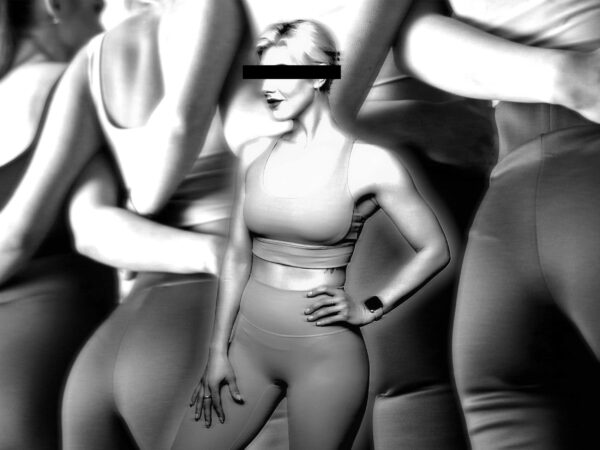On the heels of the National Book Awards announcements, columnist Drew Zeiba asks what prizes mean for publishing
Dinner at The Odeon, obviously. Saskia is in town for the National Book Awards. Ædnan, a novel-in-verse by the Sámi author Linnea Axelsson, which she translated, is nominated. “My dad is coming, he’s going to be here for the little silver medal ceremony,” she says, using her hands to indicate a ribbon being set over her collarbones. “So you already know who’s won?” I ask. “No,” she replies, “everyone gets a medal.” I am trying not to get drunk anymore, so I intend to remember this. In case I get drunk, I ask Geoff to act as my mnemonic surrogate, since he’s allergic to alcohol.
Literary groups have bestowed awards since at least the fifth century BCE (And the winner is… Euripides!). However, over the last century, and especially the last few decades, the number of cultural prizes has exploded. While people still reject these honors for political reasons—such as the nominees who boycotted PEN’s 2024 awards over the organization’s lack of support for Palestinian writers—it’s no longer considered gauche or anti-art for authors to take home these trophies, as it was for yesteryear’s luminaries like Sartre or Bernhard. Awards are just a normal part of literary operations—broadcast on CSPAN2, like the Nerd Oscars.
To try to understand the relevance of prizes to readers (certainly the most lauded aren’t always the most “popular”), I thought I’d try some statistics 101. I made a multi-tabbed spreadsheet organizing the out-of-five-stars Goodreads scores of the winners of the Nobel, Pulitzer, NBA, Booker, Neustadt… By the time I got to the National Book Critics Circle Awards I was going cross-eyed. I crunched the numbers, put in the formulae. The award-to-award average ranged between 3.9 to 4.1, which is barely a “range.” Poetry got higher points, probably because the audience was more self-selecting. (Generally, poets had orders of magnitude fewer reviewers than prose-writers—sometimes only in the low thousands.) I thought the same bias might be true of non-English literatures, but superficially it doesn’t seem so. (A publicist from Goodreads declined to comment on the languages and regions of their user base.) Svetlana Alexievich, one of the few nonfiction writers to win the Nobel, is the highest-ranked winner of any of those awards of the last several years, which seemed compelling and cool. Anyway, as on Amazon or in Artforum (RIP), some reviews on Goodreads are well written and some are inane. While I have to disagree that Han Kang and Samanta Schweblin deserve mere 3.7s, these misalignments point to bigger questions—such as should you trust 33,000 internet users or a council of 18 Swedes?
I like the writing of all the Nobel winners I’ve read (wow, he likes—squints—Samuel Beckett). And the Neustadt (“The American Nobel”). Those are both awards for a body of work—not a single book, like the other prizes I tabulated. I’ll be honest, I haven’t read most National Book Award-winning books of the past several years. (Blackouts [2023], Punks [’21], Sing Unburied, Sing [’17], and Incarnadine [’13] being exceptions.) Maybe that says more about me than the awards. I’ve read a lot of the losers. I mean finalists. I’ve never read Elizabeth Strout, but I’ve got to ask…is the Pulitzer Prize low-brow? (JK!)
You can practically hear the self-conscious sneering in my pseudo-digital-humanities discourse. So goes the genre of prize writing for the past several decades, whose gleeful disdain, according to the scholar James F. English, helps keep the prizes legit.
In his 2002 essay “Winning the Culture Game: Prizes, Awards, and the Rules of Art,” English traces the scandals around the judge’s choices, the winners’ speeches, and the losers’ at-the-dinner reactions that kept the Booker in the public eye from its beginning as a derided upstart in 1969 to its present-day dominance. Rather than undermine the prize, the drama proved its relevance, and commentators went from not taking it seriously, to seriously lamenting when the black-tie evenings weren’t juicy enough. Simultaneously, critics and recipients alike went from deriding prizes as belittling to capital-A Art to both tacit and literal acceptance. Refusal was old-school. Often, this acceptance was performed with pseudo-cynicism, enacting what English calls, borrowing from Pierre Bourdieu, a “strategy of condescension.” They got to “enjoy the awards of the game and the award due to those who are seen standing above the game.” These awards included five-to-seven figure bounties and prestige for authors, as well as word-counts and visibility for journalists. Legitimized awards benefited an evolving aesthetic-economic system by “converting ‘heteronomous capital’ (money from the mass market) into specific symbolic capital (stature in the legitimate art world) by way of journalistic capital (visibility, celebrity, scandal).” This mass-market money includes sources as varied as explosives (Nobel), colonial agribusiness (Booker, as John Berger pointed out when he donated half his winnings in ’72), and oil (Neustadt). “Under these circumstances, cultural prizes can be, at one and the same time, both more dubious—more of a joke—than they used to be, and more symbolically effectual, more powerfully and intimately intertwined with processes of canonization.”
“A recent guest to our class said ‘everyone seems to have a healthy distrust of prizes until they win one,’” the writer and translator Thomas Mira y Lopez remarks to me over email. This semester, he’s been teaching a course titled “Publishing, Prizes, and Prestige” at the University of Iowa. In it, students study the history and present of awards, hear from visiting jurors and writers, and simulate their own prize. The course—initially designed by the director of Iowa’s MFA in literary translation, Jan Steyn—“arises from a deep skepticism and a deep faith in prizes,” Mira y Lopez says.
“Literary awards play a crucial and important role today but this is not so much about the prize winner as it is about the short and long lists,” he says. And indeed if you watched (or attended!) the recent National Book Awards ceremony at Cipriani Wall Street, you’d hear Lauren Groff declare, “I hope you take the knowledge into the world beyond this evening that every single one of you deserves to win this award,” before listing each fiction finalist followed by their book title, publisher, and publisher’s parent company.
“Whatever their impacts, awards are among the most visible ways literature lives—how it circulates, not as texts, but as an idea of itself.”
According to Mira y Lopez, “The short and long lists, these judges have told us, are a way of making a statement and an opportunity to showcase different types of translated works, especially works from languages, literary traditions, and perspectives that do not get as much airtime.” This creates “tangible benefits” for writers, helping get eyes on projects that might otherwise be—to borrow a phrase from English—“commercially resistant.”
While Mira y Lopez admits that from a critical perspective, “there’s hay to be made as either a stan or contrarian” of the books who win or don’t, “one of the prevailing views is that major prizes settle for ‘safer’ winners.” He also notes that “there are too many prizes and seemingly not enough.” For instance, in the case of the National Book Awards, the prize for best translated literature (formed in 2018), doesn’t differentiate between genres like its other awards do.
Of course, he points out, the NBA and the Nobel aren’t the end all. “There are many different kinds of prizes, particularly smaller ones that obviously fall under the shadow of some of the more monumental ones, but are doing valuable, valuable work in making sure there is a diversity of prize winners, who might have a different relation to criticism and the mainstream than other prize winners do.” He mentions the Cercador Prize, the Republic of Consciousness Prize, and the TA First Translation Prize. My own X feed has been algorithmically spattered by the all-caps posts of the Pushcart Prize—which recognizes short prose and poetry published by small journals.
For Linn Cary Mehta’s course, “Politics, Writing and the Nobel Prize in Latin America,” at NYU, shifts in context are key. “You can question why these awards were made, and to whom and what that says about the prize itself,” she tells me over the phone—admitting that, in the case of her course, the Nobel was in a way an excuse to study the authors and their worlds. She centers the six Latin American winners who took home the prize for literature, as well as Rigoberto Menchú, who won the peace prize and is the only Indigenous woman among the laureates. In countries politically divided and politically repressed by the United States, studying the laureates in a university in this country “raises a whole context in which one can think about literature,” Cary Mehta says. “I think the prize gives us a way into the politics, not just the politics of the prize, but also the politics of the country.”
When it comes to the politics of the prize, their impact is not always “the intended one.” Cary Mehta cites Gabriela Mistral, the Chilean poet and diplomat, who won in 1945. “She was seen—in quotes—as a ‘mother of a nation’ and a ‘motherly’ figure, although she never married, never said she was lesbian but always had a female partner alongside her in her life.” Conversely, Jorge Luis Borges is frequently cited as an example of someone the Nobel passed over—perhaps, some believe, due to his visit to Pinochet following the right-wing Chilean coup. While the politics of the prize, at least when it comes to Latin America, have been lightly left leaning, the Swedish Academy’s choices can paint a “more conservative” portrait of a country’s literary aesthetics than what might be representative. “Maybe the committee itself is a little bit less sure of what literature they want to award it to, and therefore have fallen back on more conventional choices,” Cary Mehta speculates. “They are the white male establishment in the literature of their countries, most recently.”
Cary Mehta sees prizes as a force in bringing monolingual US readers into contact with a wider variety of literatures less beholden to this country’s aesthetic and commercial norms. “From 1967 forward, the US started publishing translations of all these writers, which meant their work was read and known and influenced writing here suddenly and deeply,” she reflects. Prizes like the Nobel and the Booker “were part of that, but not the whole story by any means.”
Whatever their impacts, awards are among the most visible ways literature lives—how it circulates, not as texts, but as an idea of itself. This visibility is so salient as to serve as a hinge to what might have been the most popular (and decorated) movie about publishing in at least a decade, American Fiction (2023). Adapted from Percival Everett’s 2001 Pulitzer-finalist novel Erasure, it follows the academically solid and solidly badly selling writer Thelonious “Monk” Ellison. Pissed off by the success of Sintara Golden’s We’s Lives in Da Ghetto, which he views as hack work playing into racial stereotypes held by its primarily liberal white readership, he decides to dash off his satire, My Pafology (later renamed Fuck), from the perspective of the formerly incarcerated persona Stagg R. Leigh. He means it as a joke, a middle finger. His agent thinks he’s insane. Publishers love it. Forced to make money quickly, he decides to release the book—still pseudonymously—and, to his horror, winds up on an awards committee where his white colleagues want to honor it. (Golden, who is also on the committee, does not.)
While Ellison has little faith in the literary establishment and its absurd, asinine assignment of prestige, as Everett accepted his National Book Award last week for James, he told the audience, alluding to Trump’s win, “As I look out at this, so much excitement about books, I have to say, I do feel some hope.” At least that’s how NBC reported it. If you watch the speech, however, you’ll hear him add, “Hope really is no substitute for strategy.” He shuffled his papers, did his thank yous.
The philosopher Gilles Deleuze wrote, “Literature is the competition of misinterpretations that consciousness naturally and necessarily produces on themes of the unconscious, and like every competition it has its prizes.” Are prizes the inevitable result of the competing readings native to literature itself?
It’s not unfair to dismiss proliferating prizes as indicators and agents of capitalist engorgement. They come from institutions beholden to and productive of a variety of ideological and structural underpinnings worth untangling. But awards are also meted out—as Erasure and American Fiction dramatize—by idiosyncratic groups of writers, critics, booksellers, academics, translators, and so on. As everyone I spoke with noted, new prizes also support a more varied, diverse literary universe, offering pathways for readers to connect with books from across the globe they might not otherwise hear about. Historically, awards have also helped reframe the whitewashed canon—securing writers, like Nobel- and Pulitzer-laureate Toni Morrison, enduring places in curricula. Without being resigned to our commercial environment, could prizes work to support authors and the relevance of (some) books in the public sphere in a thoughtful, messy, human fashion, less beholden to sales numbers, algorithmic indecision, or pre-existing fame?
Every year, committees come together, and try to agree.



















